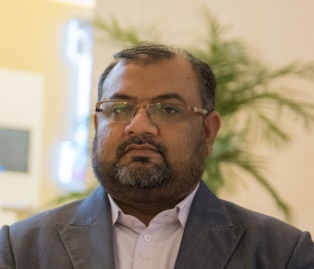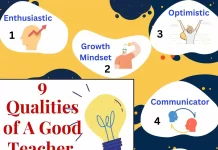Press release siyasat.net
On 23 May 2021, Dr Kaleem ALAM, who is researcher at Islamic Economics Institute, King Abdulaziz University, made a presentation on FinTech SWOT Analysis at Karatay International Conference on Islamic Economics and Finance (KARCIEF), Turkey – Virtual conference.
SWOT stands for Strength Weakness, Opportunities and Threats. According to him FinTech gained edge as result of global financial crisis of 2008. FinTech is made of two word ‘Finance’ and ‘Technology’ Called as “Financial Technology”. FinTech is defined by Investopedia as “new tech that seeks to improve and automate the delivery and use of financial services. At its core, fintech is utilized to help companies, business owners and consumers better manage their financial operations, processes, and lives by utilizing specialized software and algorithms that are used on computers and, increasingly, smartphones. Fintech, the word, is a combination of “financial technology “.
Among the strength of FinTech is its borderless nature. The universality of its application is its appeal and mobile friendliness makes it easy to use.
The recent rise in internet penetration has further strengthened the FinTech appeal. And for sure since Covid 19 the Internet has risen, estimated to be more than 59.5% of the world population.
According to him more than 70% of the browsing are done on smartphone and tabs and as per 2018 data more than 54% of the orders are made through Smartphones and Tabs, which must have further risen since Covid 19. He quoted that ‘Financial technology companies have become acutely aware of this shift and have been adapting to consumer demands for more mobile-friendly financial services as a result’.
Dr ALAM said “Islamic FinTech (i-FinTech) is no different from any other FinTech in the market except for its halal nature (shariah Complaint), which appeals to Muslims. Its not just because halal means good and pure, but it is also because Muslims believe in life after death, which motivates them to desire halal products. Use of ‘Halal’ or ‘Shariah Compliant’ has strong marketing appeal. i-FinTech has to ensure it must follow the basic shariah guideline for all its products. That is, it has to be free from Riba, it must not be involved in speculative activities, it must not be used for crime or terror activities, it must be clean from obscenity and intoxicants. i-FinTech need to fulfill its promise and uphold the trust its customers have placed in it. Only by fulfilling these conditions can it be truly worthy of calling itself Islamic-FinTech company. And this is what its customers expect from them.”
There is little barrier for many of the FinTech companies, as many of them are mostly service providers and do not act as depositors for savings. The regulators are improving law and trying to legislate regulation that could define and fit to the nature of FinTech. Fintech can make assessing credit risk of small borrowers feasible and economical. Fintech can support financial stability by reducing the banks’ operational costs and improving risk management. Fintech can also improve financial integrity.
The biggest weakness of the Fintech firm is lack of trust and missing lender of last resort compared to traditional banks.Cyber Security is the biggest threat to FinTechs. For I-FinTech beside security it is Non-Shariah compliance. Less regulation is also a threat as rogue players can jump in.
TechFin which is opposite of FinTech is also a challenge, entry of firms like Apple, Amazon, Facebook. Alibaba, etc. in the financial horizon has thrown a new challenge.
Easy to start provide big opportunity to FinTech firms as it is less regulated. Reachability is another opportunity provided by FinTechs, as it can reach beyond borders. The biggest opportunity is provided by unbanked population. The mission of better financial inclusion can be achieved by the help of FinTechs. The Fintech overcomes many of the shortcomings of Traditional holdings of account including their document requirements
The unbanked population presents a huge opportunity to many FinTechs to fill the gap and especially for i-FinTech as according to the Global Findex many Muslim populated countries cited religion to be a reason for not banking. From the same report Dr Kaleem ALAM calculated that the Organization of Islamic Cooperation (OIC) countries have an average of 56% unbanked population. OIC members in Africa have an average of 62.8% unbanked population, Asian Members have 52.75% unbanked population while the Middle East has 47.14% unbanked population. .
So Dr ALAM called on OIC (Organization of Islamic Cooperation) to “develop a special unit to study and certify the i-FinTechs. It can take the help of International Islamic Fiqh Academy (IFA) to study the shariah compliance and perhaps Statistical, Economic, Social Research and Training Center for Islamic Countries (SESRIC) to study the FinTech company’s financial health and viability. This financial health certification is important as it will involve the funds of many poor Muslims who may be devastated by the failure of the FinTech. Hence it will be a great service by OIC to prudently study and certify the financial health and viability of the FinTech along with its shariah compliance”.
(www.siyasat.net is Ahmedabad, Gujarat, India based Website, powered by Gujarat siyasat, a Fortnightly)
An Appeal For The Sake Of Upright & Fearless Brand Of Journalism
To sustain and improve our coverage. Gujarat siyasat- a vernacular Fortnightly and English٫ Hindi Website www.siyasat.net
Your little but timely support is needed۔
Bank details، GUJARAT SIYASAT, Current Account 204720110000318, ifsc code BKID0002047 BANK OF INDIA , VASNA BRANCH, AHMEDABAD GUJARAT INDIA
Also on Phone pay, Paytm,Google pay +91 9925531111
सत्य को ज़िंदा रखने की इस मुहिम में आपका सहयोग बेहद ज़रूरी है। आपसे मिली सहयोग राशि हमारे लिए संजीवनी का कार्य करेगी और हमे इस मार्ग पर निरंतर चलने के लिए प्रेरित करेगी। याद रखिये ! सत्य विचलित हो सकता है पराजित नहीं।
Regards,
Abdulhafiz Lakhani
Ahmedabad GUJARAT,India

































